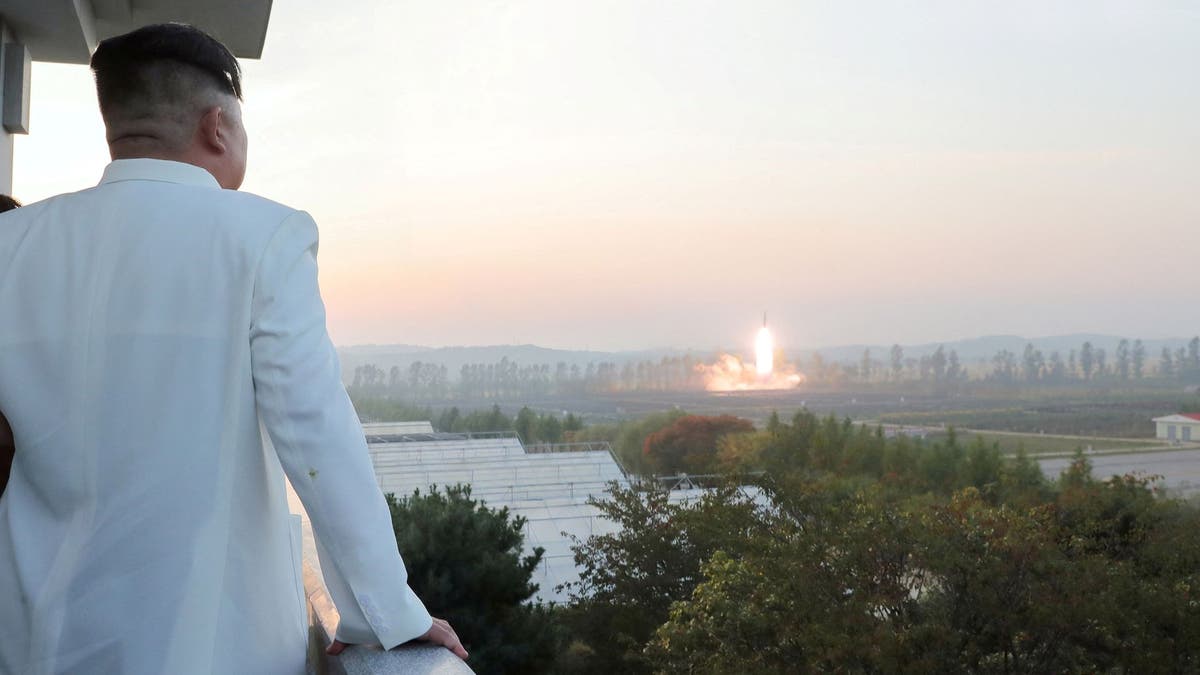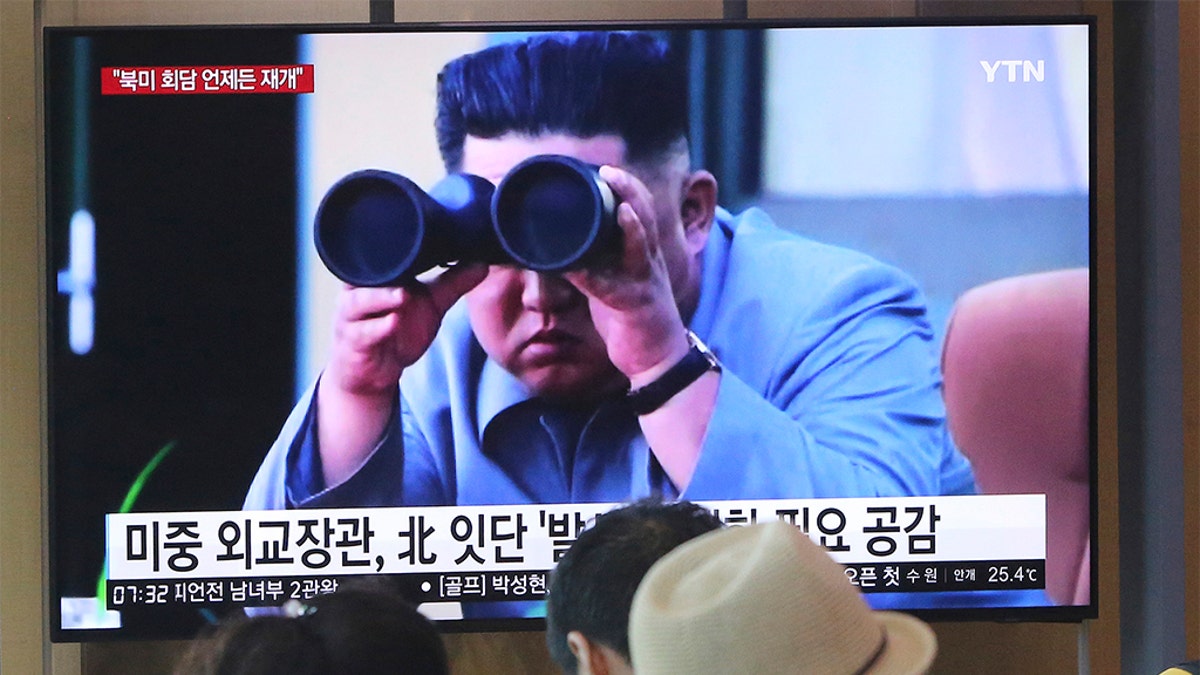Gen. Jack Keane on North Korea's motivations behind missile launches
Fox News senior strategic analyst Gen. Jack Keane weighs in after North Korea missile launches trigger evacuation alerts in Japan on 'Your World.'
SEOUL, South Korea - Last week, North Korea launched at least 30 missiles and hundreds of artillery shells after threats from Pak Jong Chon, secretary of the Central Committee of the Workers’ Party of Korea. He strongly condemned the joint military drills between South Korea and the United States, saying that "the U.S. and South Korea will get to know what an irrevocable and awful mistake they made." While many observers looked to dissect his statement as a threat of a nuclear test, others believe North Korean leader Kim Jong Un is biding his time.
"I think Kim has been holding off on a nuclear test because he wants to rub it into the U.S. and South Korea with a major Hwasong-17 ICBM test before escalating further with a nuclear test," Sung-Yoon Lee, a professor at the Fletcher School at Tufts University, told Fox News Digital.
Recalling the failure of imposing new U.N. Security Council resolutions even after the North tested ICBMs this year, Lee added that the North Korean leader "has nothing to lose by taking his time and continuing his strategy of graduated escalation before delivering his coup de grâce, a major nuclear test or even a series of tests."

Kim Jong Un oversees a missile launch at an undisclosed location in North Korea, in this photo released on Oct. 9, 2022, by North Korea's Korean Central News Agency. (KCNA via Reuters)
NORTH KOREA FIRES 4 MORE BALLISTIC MISSILES AS US, SOUTH KOREA END DRILLS
As South Korea and the United States have reinvigorated their joint military exercises, including the latest "Vigilant Storm" air drill, North Korea has routinely responded to them by launching ballistic missiles and firing artillery shells.
The North also launched a short-range ballistic missile toward the South’s Ulleung County, a first of its kind launching of a missile across the south of the Northern Limit Line – the de facto maritime border between the two Koreas – since the two Koreas divided.
Seoul and Washington have both condemned the North’s ballistic missile launches as they are a clear violation of the U.N. Security Council resolutions. Also, the North’s artillery fire is a violation of the military agreement signed by then-South Korean President Moon Jae-in and Kim Jong Un during the Pyongyang summit in September 2018.
SOUTH KOREA SCRAMBLES JETS AS NORTH KOREA LAUNCHES 180 FLIGHTS ON BORDER

People stand by a TV screen showing file footage of North Korean leader Kim Jong Un, at the Seoul Railway Station, Aug. 2, 2019. (AP Photo/Ahn Young-joon, File)
However, North Korea has not shown any hesitancy over its military provocations toward the South since China and Russia are expected to continue using their vetoes on imposing new sanctions at the U.N. Security Council. In addition, the military agreement between the two Koreas has shown to be ineffective in deescalating the growing tensions on the Korean Peninsula.
In this context, North Korea has apparently scaled up its provocations toward South Korea and the U.S. but it only launched ballistic missiles, including its Hwasong-17 intercontinental ballistic missile (ICBM), while showing no new moves on its nuclear test.
Kim Jong Un vowed to strengthen his country’s nuclear capabilities in September, indicating that the North’s seventh nuclear test is imminent. North Korea also codified a new law to legitimize the preemptive use of the nuclear weapons with certain conditions, boosting Kim’s plan to develop powerful tactical nuclear weapons that can be deployed with the front-line units near the shared Korean border.

An Army Tactical Missile System missile is fired during a U.S.-South Korea joint military drill at an undisclosed location in South Korea, Oct. 5, 2022. (South Korea Defense Ministry via AP)
Along with Pyongyang’s activities to restore its Punggye-ri nuclear site, which was captured by satellite imagery this year, Seoul and Washington have already said Pyongyang seems to have completed preparations to carry out a nuclear test. Seoul’s spy agency stated that the North could carry out a nuclear test sometime between Oct. 16 and Nov. 7 – a timeline set between the opening of the 20th National Congress of the Chinese Communist Party and the U.S. midterm elections on Nov. 8.
Under a five-year plan to modernize the country’s military and defense system – which was proposed during the Eighth Party Congress in January 2021 – some observers believe it is just a matter of time before Kim Jong Un carries out a nuclear test. However, as North Korea has not conducted its test in the schedule suggested by South Korea's spy agency, it is unclear whether Kim is going to conduct one this year.
South Korea and the U.S. concluded six days of military drills that involved hundreds of servicemen on Saturday. The North claimed the drill was practice for a full-scale invasion.










































